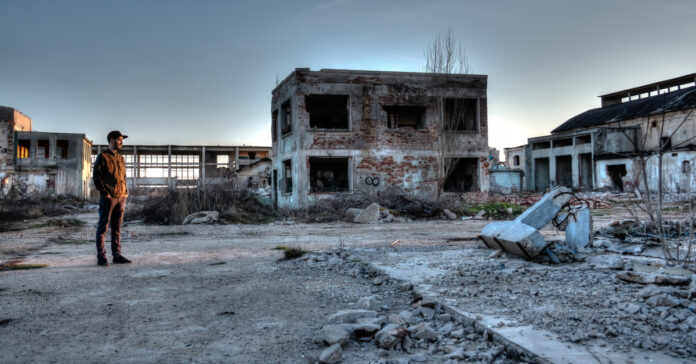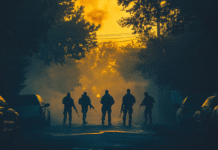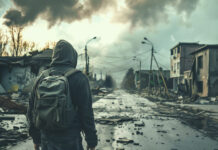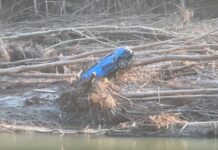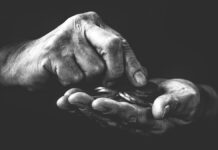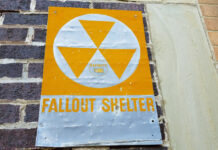In a recent email exchange with a reader, I said:
“In every prior economic collapse, catastrophe, and default, the country involved has eventually recovered. Our job as preppers is to live through that period between collapse and recovery. I prepare so I can get through the period of collapse as easily and comfortably as possible, avoid the die-off, and then resume something close to my normal life afterwards. ”
As we face the unknown, with a growing number of challenges potentially around the bend, keeping in mind that we only have to get through the worst of it may help you. I believe there will be a recovery. We may never return to better, but I believe that after a collapse or a crisis, things will recover, just as they did after the inflation in the late 1970s and early 1980s.
Taking things one step at a time, here are some survival objectives to consider:
Objective 1: Survive the Event
Whether this is a natural disaster, a nuclear bomb, food riots, hyperinflation, or societal collapse, the first step is to live through the event and any immediate complications such as civil unrest, neighbor turning on neighbor, or people being rounded up by authorities and sent to refugee camps. This should be a period measured in weeks.
Objective 2: Live Through the Die-Off
The die-off takes place in the weeks and months following a disaster. This is the period following a disaster or the magnitude that utilities go off stream and the trucks stop rolling. Because of this massive disaster:
- People with life-threatening illnesses or who need regular medical care will die.
- Disease and illnesses, often caused by poor hygiene, drinking unclean water, or being packed in crowded refugee centers, will kill many of the survivors. The lack of antibiotics alone will kill millions of people who might otherwise have lived if treated with modern medicines.
- Survivors will kill each other while fighting over limited resources, or gangs and survivors team up and go on a rampage because there is no longer the rule of law or other consequences to stop them.
- Starvation kills people without adequate food reserves.
- Exposure kills people, especially during the first winter in cold climates when there is no natural gas, electricity or other source of heat in most cities and suburbs.
It’s important to note that in a slow financial collapse like that seen in Venezuela, the die-off may be much smaller than in a total collapse like that caused by an EMP strike. The only good news is that either way, the bulk of the die-off should be over after the first full winter.
Objective 3: Achieve a Stable Post-disaster Lifestyle
At some point, the disaster will be over, the situation will stabilize, and your threat level will drop. When that happens, you need to focus on creating a situation for you and yours in which you can survive over the long run. You may also need to expand outward a bit to include the immediate community or what is left of it.
After the die off, you will need to look beyond your stored food and gear and determine how you can survive when it runs out or wears out. This might include raising more of your own food or fiber. It might include gleaning and foraging, assuming there is something left to glean that has not been picked clean. You might establish business relationships with other survivors where you “earn” food by providing a skill or a service to them. You might build new relationships based on barter and trade.
This is the period when you will live like it’s the 1880s, using animal power instead of gasoline, butchering your own meat, burning coal or wood for heat instead of natural gas, keeping food cool in the spring house instead of the refrigerator, and making or repairing your own clothes instead of buying goods made in China or Vietnam. This is when old skills like blacksmithing or leather working will be valuable, but some modern skills like being a doctor, dentist, or veterinarian will still be valuable.
It is also the time during which law and order will recover and people will agree on some generally accepted norms, likely based on the Ten Commandments. We may see the emergence of small governments or committees to help with the rebuilding and stabilization of a geographic area.
Objective 4: Emerge After the Recovery
Unless there has been a 99+ percent die off (possibly from a horrendous virus or widespread radiation) and you are one of the sole survivors, I expect someone will set up an electrical power distribution system, possibly using a hydropower dam as a source. Someone else will pump oil and making gasoline and diesel again, even if it is on a small scale. This will lead to pockets of recovery at spots across the country where the appropriate conditions and know-how exist. These areas will quickly progress from living like it was the 1880s to living like it is the 1920s.
For some time, these distant locations will be like old European cities, connected by merchants in caravans, river boats, or canal barges. As knowledge, equipment and resources are shared, what took centuries in Europe will take just a decade or two as the rebuilding grows. We will probably see the return of the locomotive and rail travel before personal automobiles return. I expect it will be many years before we can produce sophisticated integrated circuits and move from an analog world back into a digital one.
Your Final Objective
Your overriding objective is to live to reach this period and to bring as many of your family members and prepper friends as possible to that point. One day, those old light switches on the walls will work again, and you will get a kick showing the kids who have known nothing but a flame how to turn on the lights. When that happens, you will know you have made it through the bad times.
When you wake up in your new cotton sheets produced in the U.S., slip on a pair of comfortable shoes made a couple hundreds of miles away, and sit down in the kitchen to drink your first cup of fresh coffee ground from beans imported from South America, you will know the good times have finally returned.
That’s why I prep, to ensure there are good times in our future and that we live to see them.

